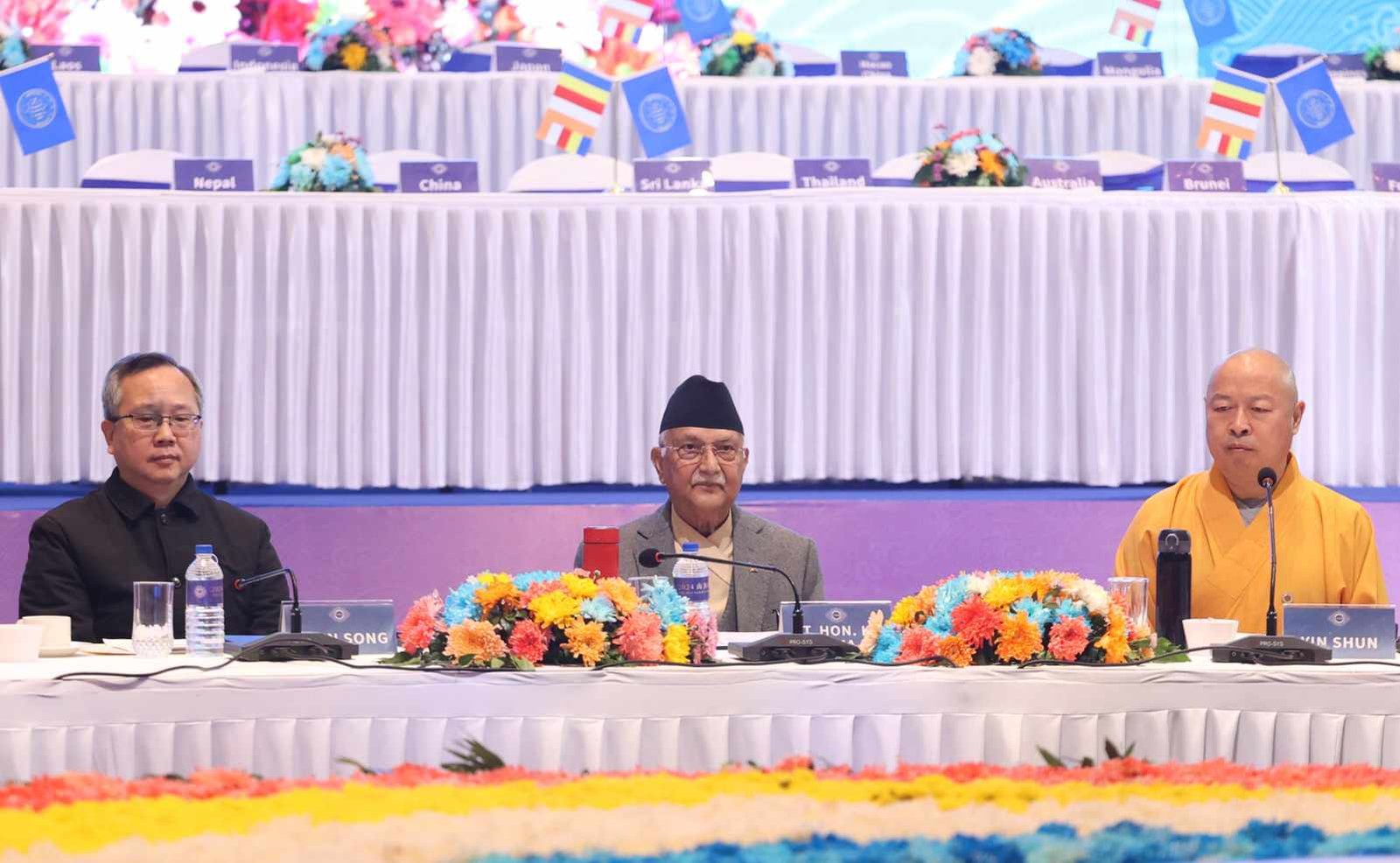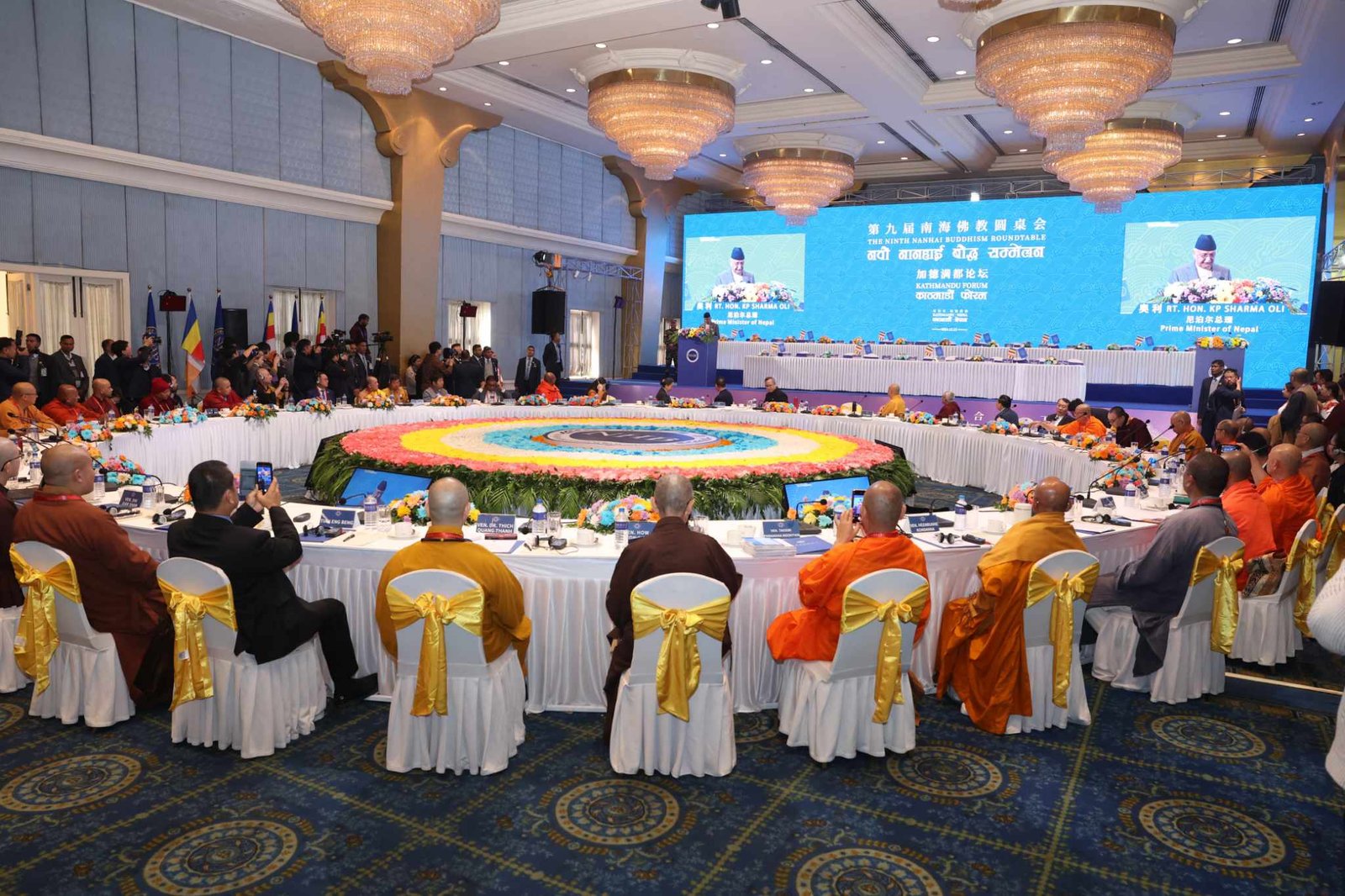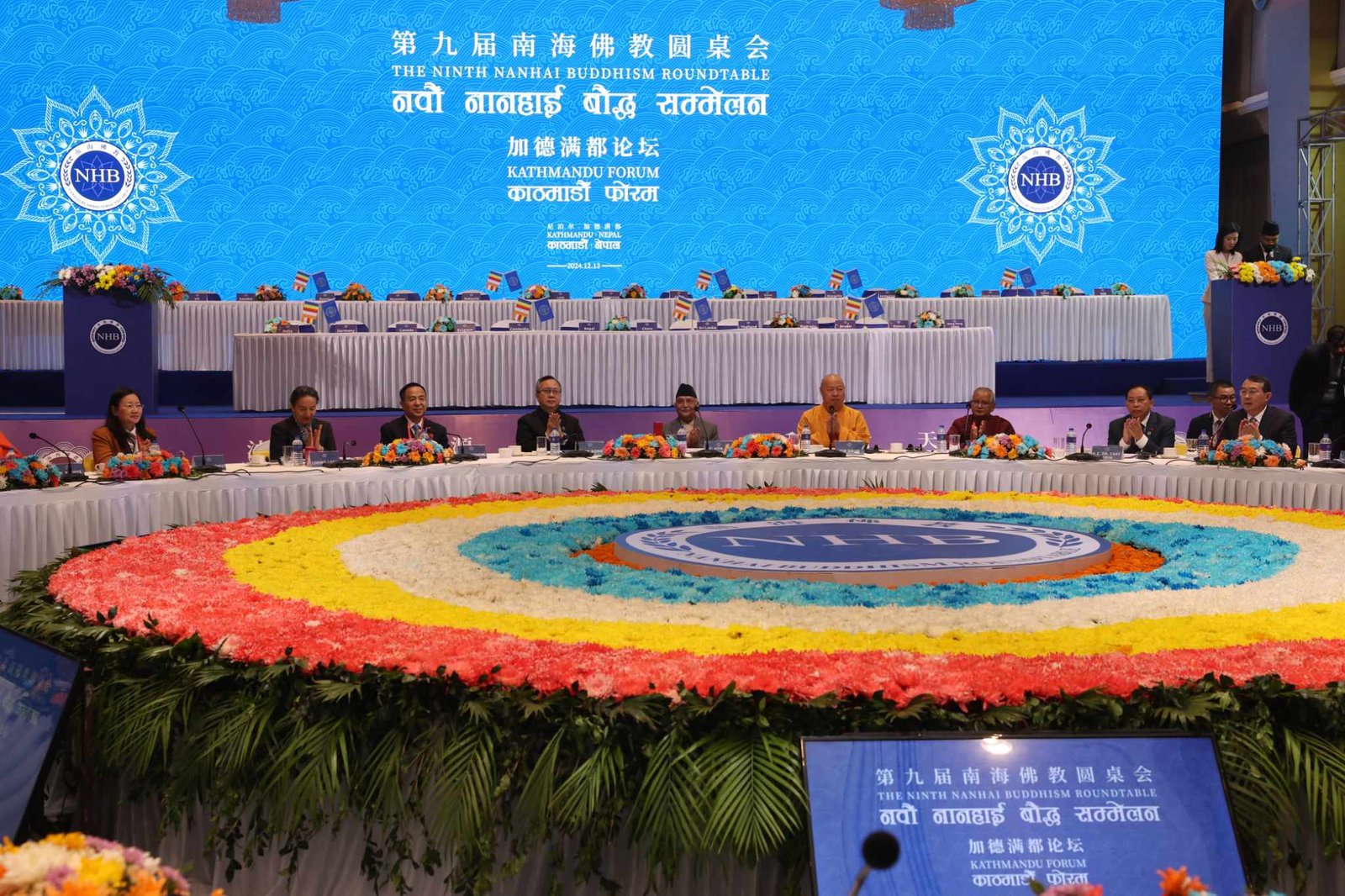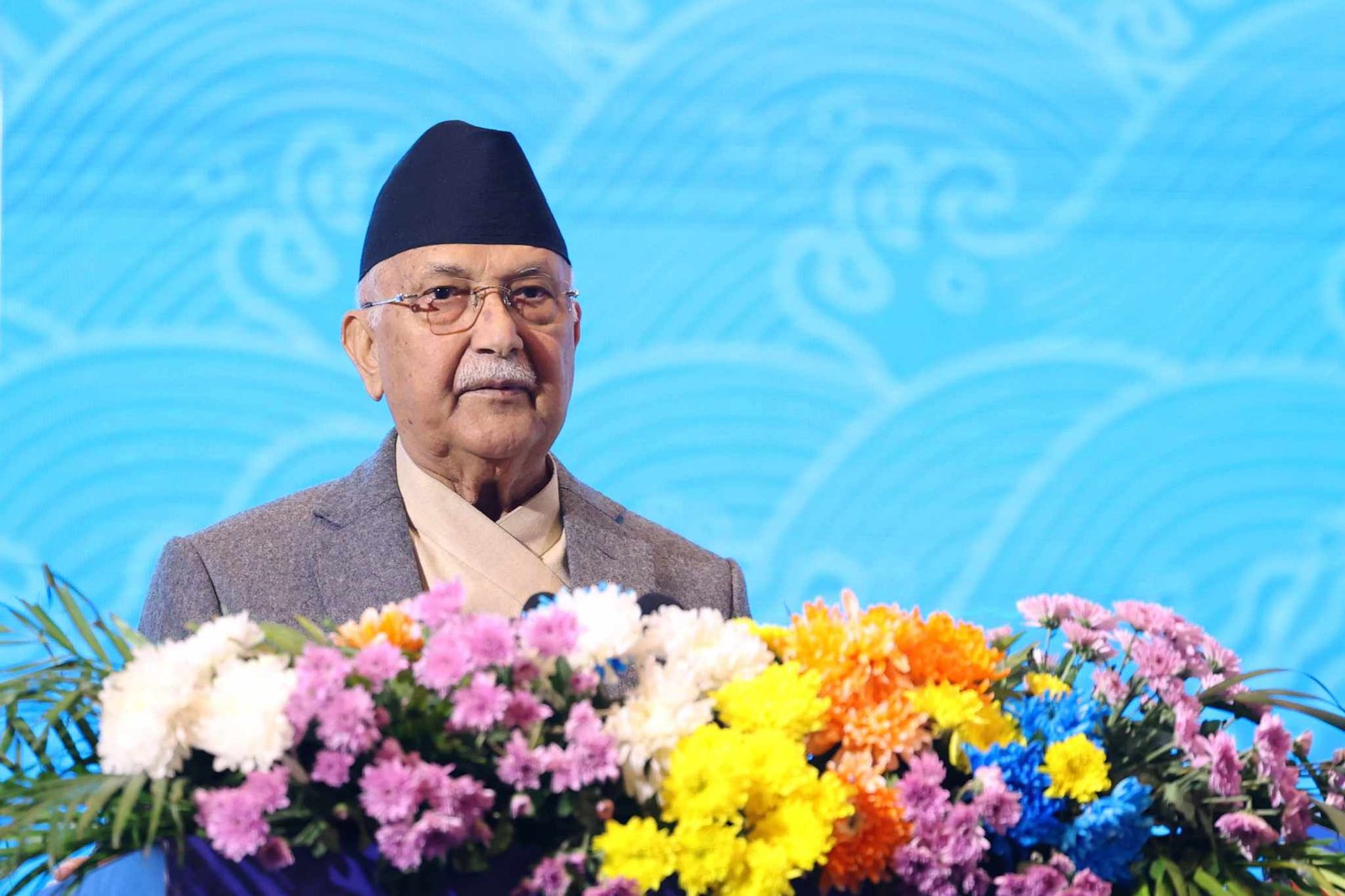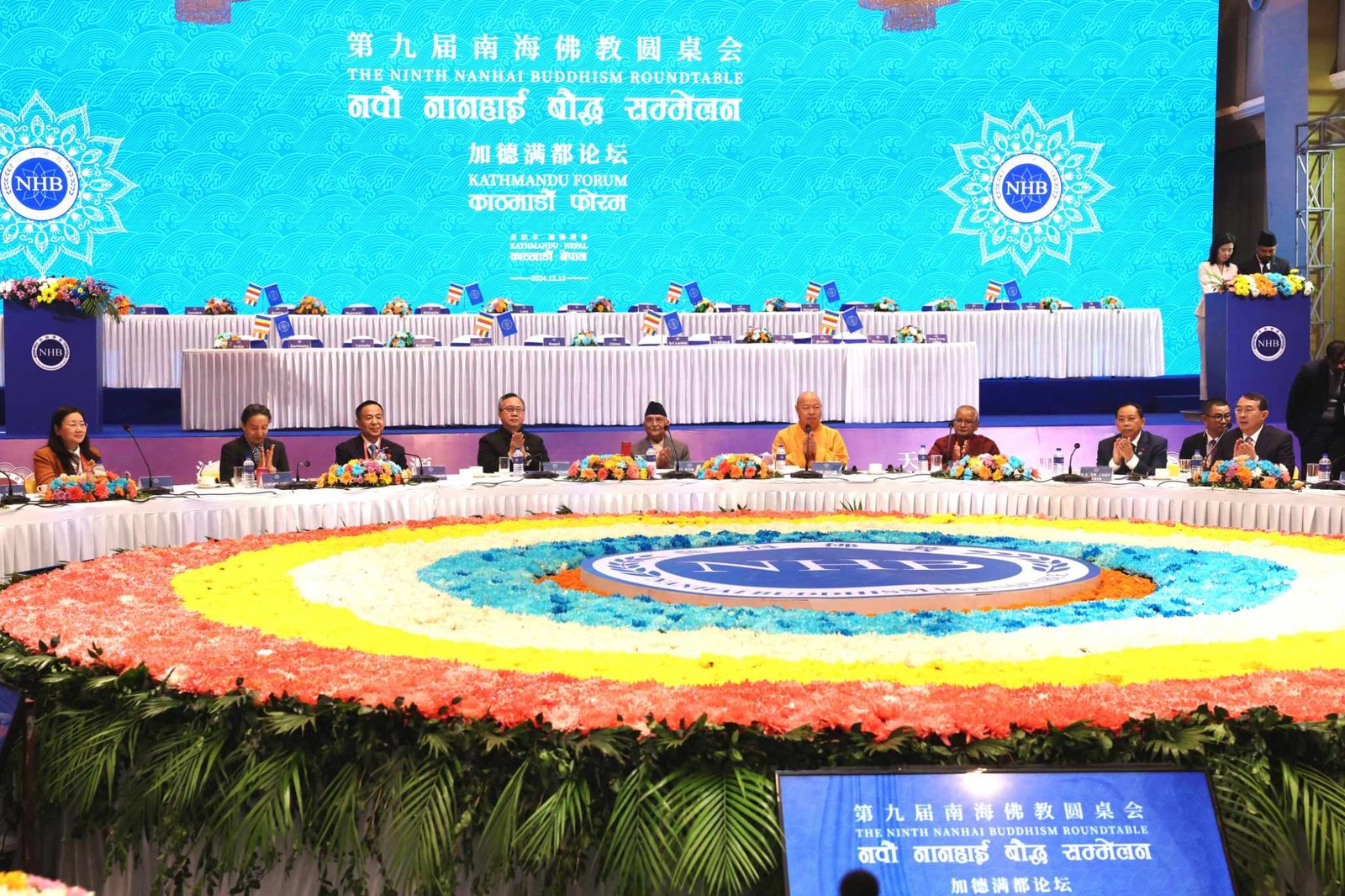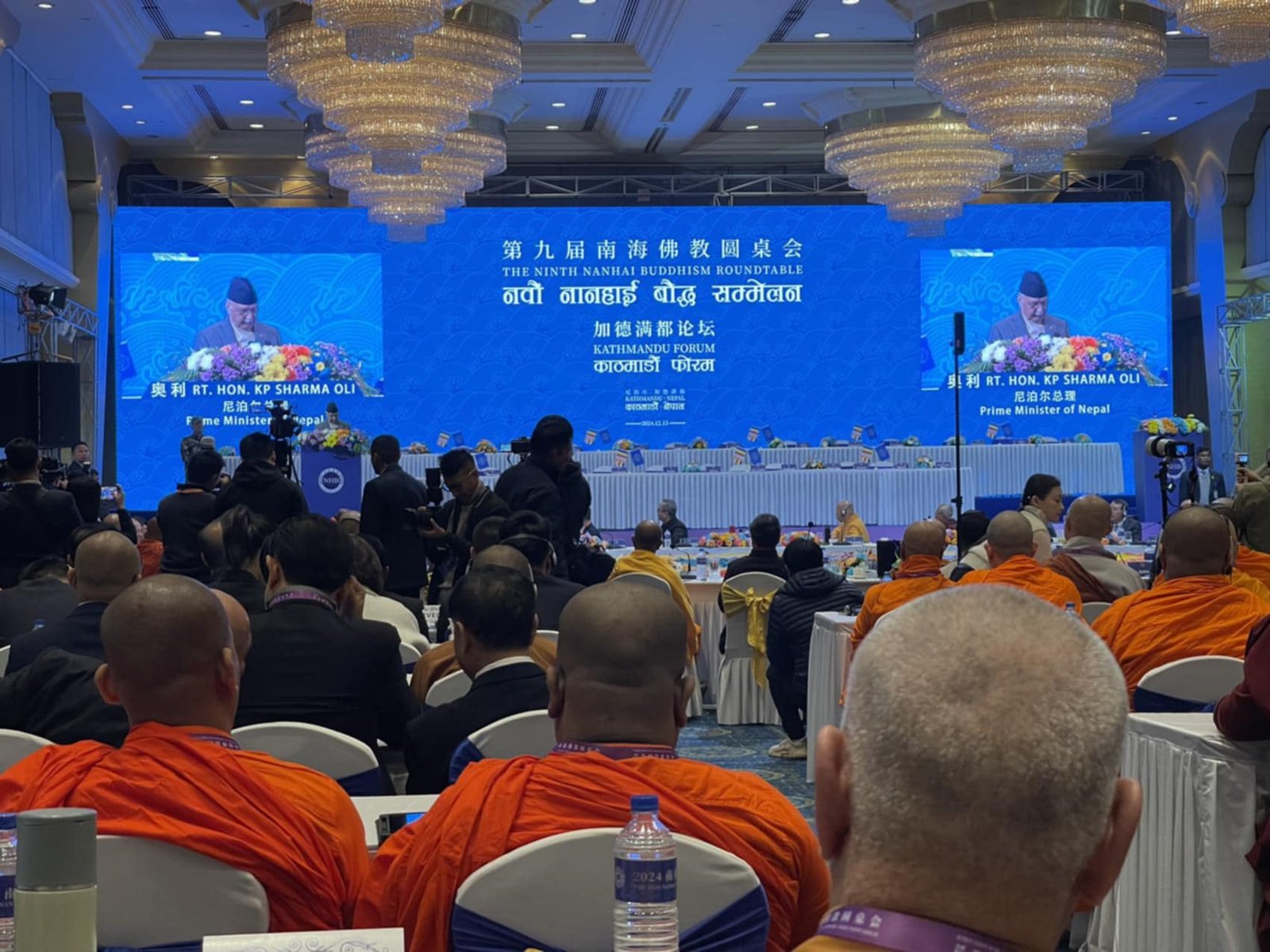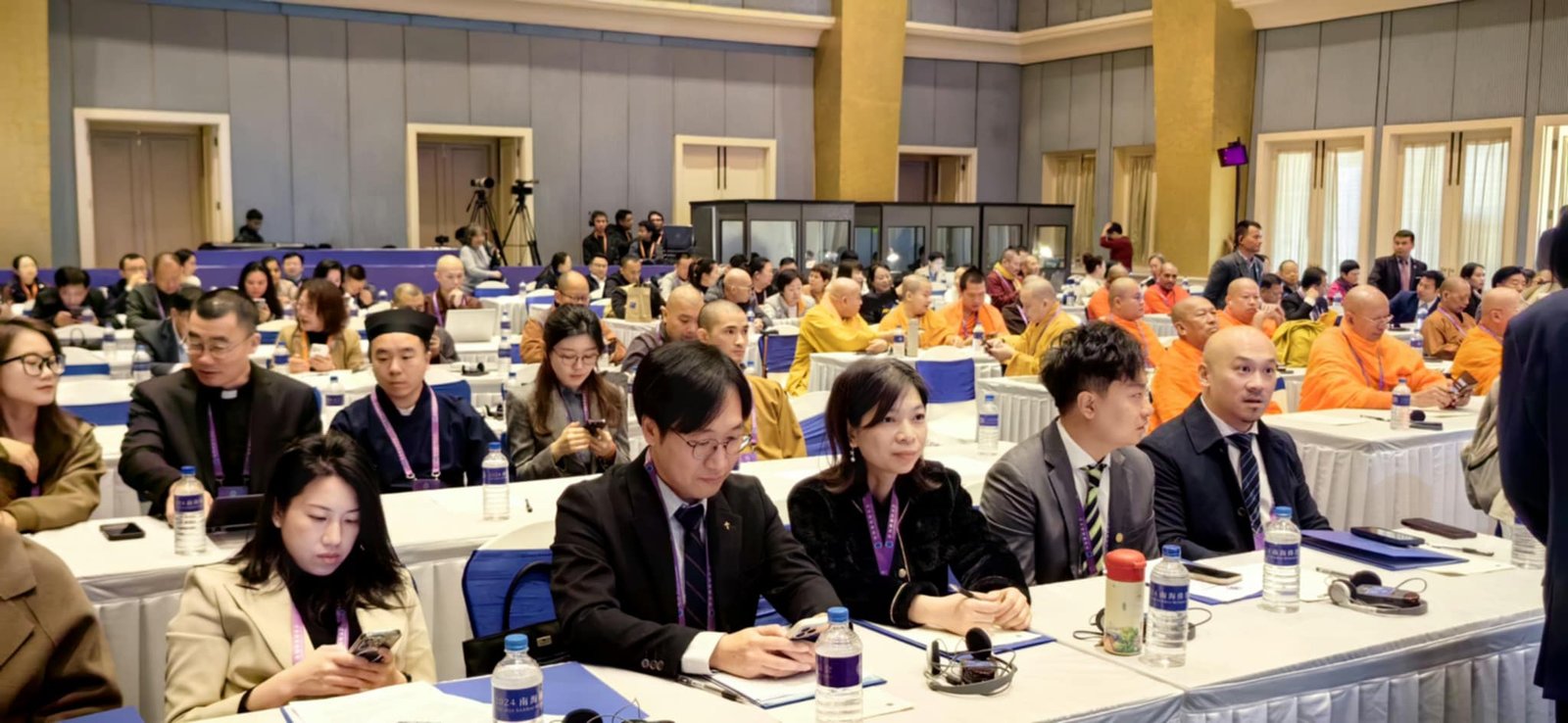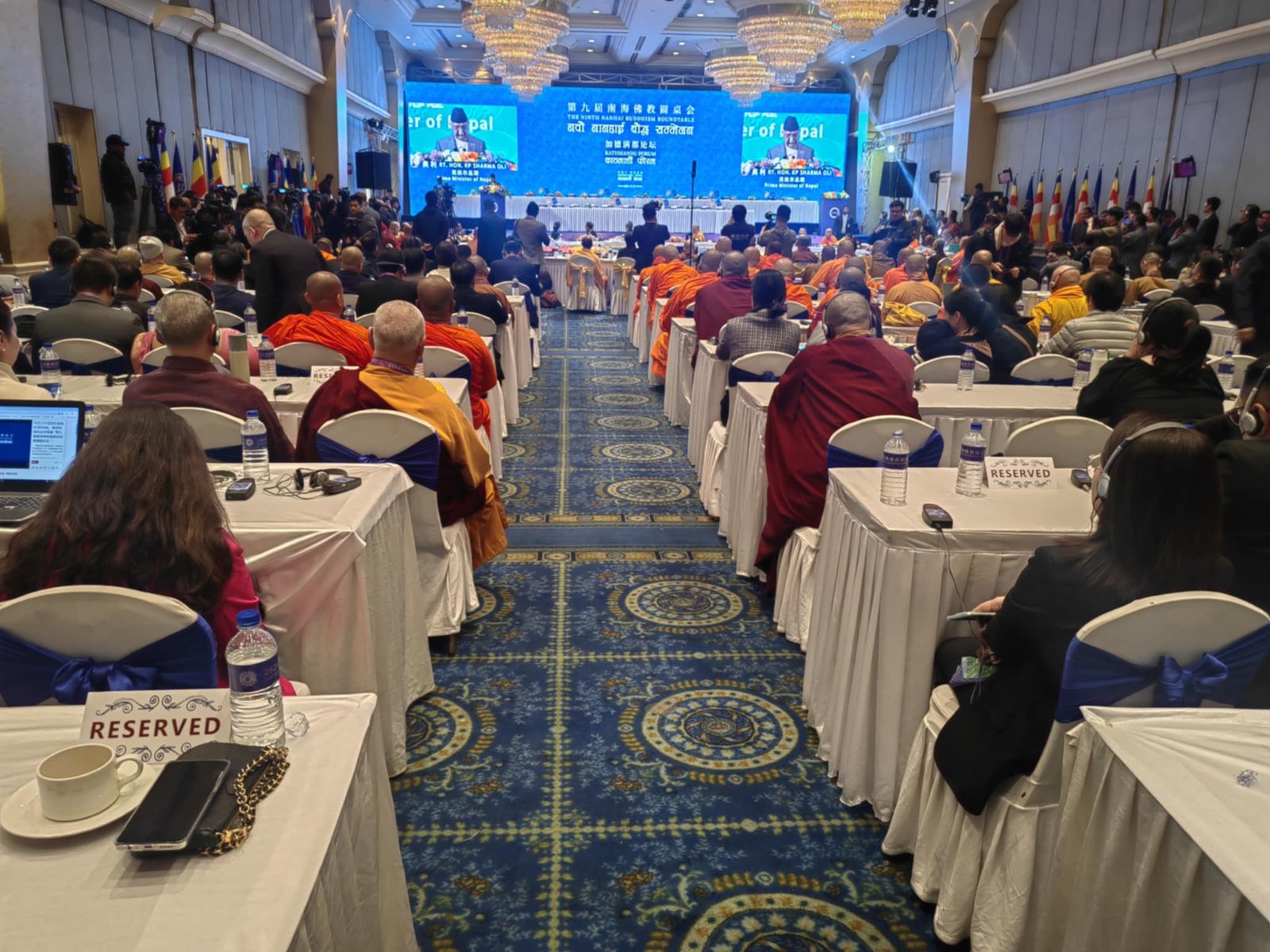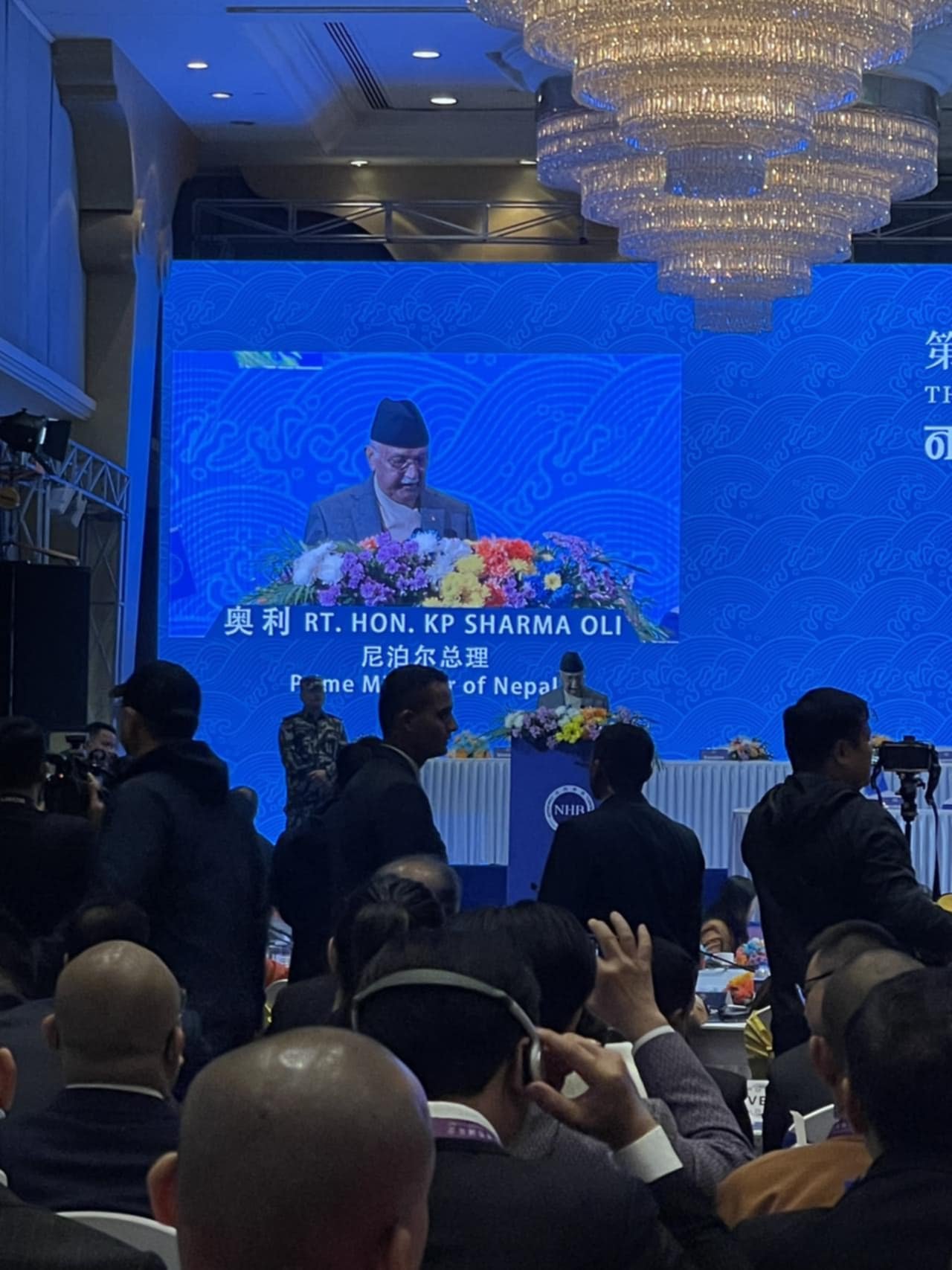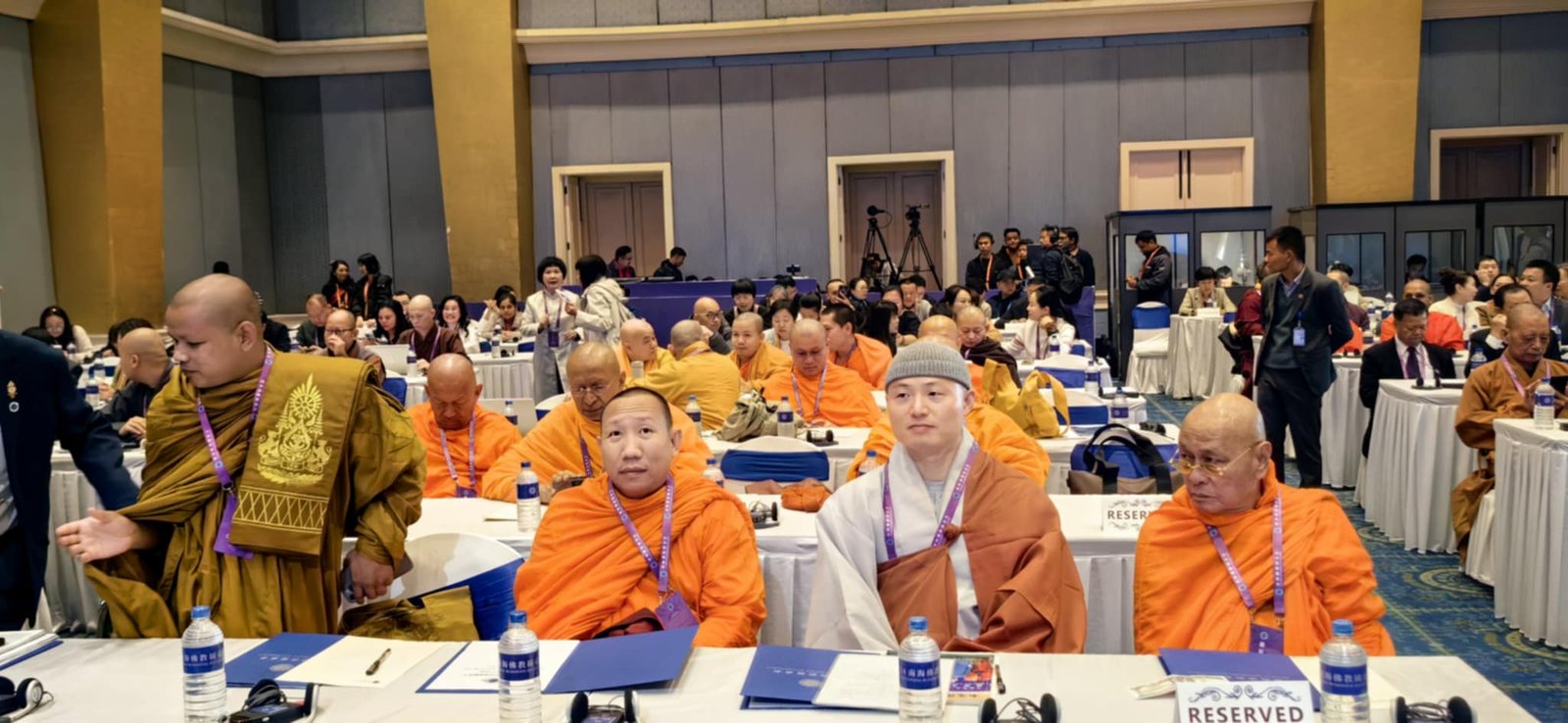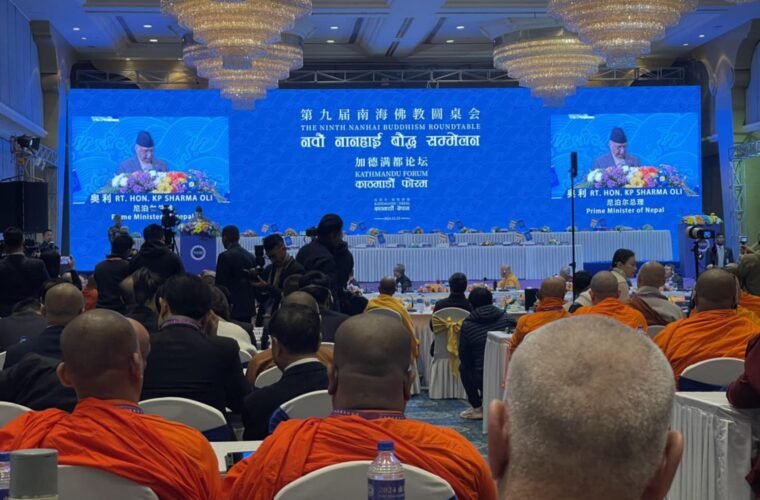Kathmandu, Dec 13: Prime Minister KP Sharma Oli has described Buddhism as a ‘luminous thread’ in the relations between Nepal and China.
“Nepal and China share more than just borders; we are bound by the timeless tapestry of our history, the majestic embrace of our mountains, the life-giving flow of our rivers, and the profound richness of our cultures.
Buddhism has been the luminous thread that weaves together the spiritual and cultural fabric of our two nations, fostering an enduring bond of harmony and understanding,” PM Oli said, addressing the Ninth Nanhai Buddhism Roundtable Forum today.
Noting that this gathering holds particular significance as it takes place in Nepal, the sacred birthplace of Gautam Buddha, the Light of Asia, PM Oli said this land, blessed by his footsteps, symbolizes a timeless bridge between the Buddhist heritage of Nepal and China, reflecting a profound spiritual and cultural connection that has flourished through centuries.
Prime Minister Oli said teachings of Gautam Buddha illuminate the path to a meaningful and harmonious life, and His profound message of love, compassion, non-violence, and universal peace transcends the bounds of time, offering solace and guidance to humanity in its moments of despair.
“The Chaar Arya-Satya (Four Noble Truths) and the Ashtanga-Marga (Eightfold Path) remain timeless principles that can liberate us from suffering and guide us toward enlightenment. In an age marked by materialism and division, the wisdom of Buddha resonates ever more powerfully, reminding us of the need to nurture compassion, embrace peace, and uphold the Pancha Shila (Five Moral Precepts).
This forum, convened in the spirit of these sacred teachings, is a beacon of hope for a world yearning for peace and cooperation. It is heartening to learn that the Kathmandu Forum will be followed by a Youth Forum and the World Peace Prayer Ceremony in Lumbini, inspiring younger generations to carry forward the luminous legacy of Buddha and his teachings,” PM added.
Stating that from the ancient journeys of the Chinese monks Fa Xian and Xuan Zang to Nepal, to the enlightening visit of Nepali scholar Buddhabhadra to China, our shared history is replete with exchanges of wisdom and learning, PM Oli said, adding that the architectural marvels of Nepali-style Buddhist temples in China and the grandeur of the Zhong Hua Chinese Buddhist Monastery in Lumbini stand as eternal monuments to this enduring connection.
The PM said: “It fills my heart with pride to acknowledge the role of Lumbini Buddhist University in Nepal, a beacon of knowledge dedicated to Buddhist studies. The collaborative engagements between this institution and the Nanhai Buddhist Academy in China exemplify the spirit of partnership and shared aspiration.
I am confident that these bonds will grow stronger in the days to come, enriching the legacy of our shared heritage.”
The culmination of eight successful episodes of the Nanhai Buddhism Roundtable speaks to the enduring dedication of this platform towards safeguarding peace, fostering cultural exchanges, and nurturing the symphony of civilizations.
Today, as the ninth chapter unfolds here in Kathmandu, I am confident that it will deepen the bonds of friendship, inspire mutual learning, and advocate the eternal values of peace, compassion, and cooperation among Buddhist communities in Nepal, China, and beyond.
On the occasion PM Oli extended his deepest gratitude to the organizers for bringing together this august gathering of the global Buddhist community to champion the cause of harmony and peace.
“May this forum serve as a guiding light, fostering love, compassion, and understanding across nations and peoples. Let it inspire humanity to walk the noble path laid out by Gautam Buddha, leading to a life of peace, fulfillment, and collective prosperity. May the teachings of Buddha continue to guide us toward a brighter, more harmonious world,” he said.
Statement by Rt. Hon. Prime Minister Mr. K P Sharma Oli
at the Nanhai Buddhism Roundtable Forum
Venerable Master Yin Shun,
Respected Abbots of esteemed Buddhist Temples,
Distinguished Members of Chinese, Nepali, and Global Buddhist Communities,
Ladies and Gentlemen,
Namaskar and warm greetings!
It is a profound honour to stand amidst such revered religious leaders, venerable monks, and esteemed scholars in this sacred assembly. This morning, as we gather under the shared banner of wisdom, compassion, and mutual respect, I extend my heartfelt gratitude to the Secretariat of the Nanhai Buddhism Shenzhen Roundtable for organizing this remarkable forum and for inviting me to share my reflections.
The culmination of eight successful episodes of the Nanhai Buddhism Roundtable speaks to the enduring dedication of this platform towards safeguarding peace, fostering cultural exchanges, and nurturing the symphony of civilizations.
Today, as the ninth chapter unfolds here in Kathmandu, I am confident that it will deepen the bonds of friendship, inspire mutual learning, and advocate the eternal values of peace, compassion, and cooperation among Buddhist communities in Nepal, China, and beyond.
This gathering holds particular significance as it takes place in Nepal, the sacred birthplace of Gautam Buddha, the Light of Asia. This land, blessed by his footsteps, symbolizes a timeless bridge between the Buddhist heritage of Nepal and China, reflecting a profound spiritual and cultural connection that has flourished through centuries.
Distinguished Guests,
Nepal and China share more than just borders; we are bound by the timeless tapestry of our history, the majestic embrace of our mountains, the life-giving flow of our rivers, and the profound richness of our cultures. Buddhism has been the luminous thread that weaves together the spiritual and cultural fabric of our two nations, fostering an enduring bond of harmony and understanding.
From the ancient journeys of the Chinese monks Fa Xian and Xuan Zang to Nepal, to the enlightening visit of Nepali scholar Buddhabhadra to China, our shared history is replete with exchanges of wisdom and learning.
The architectural marvels of Nepali-style Buddhist temples in China and the grandeur of the Zhong Hua Chinese Buddhist Monastery in Lumbini stand as eternal monuments to this enduring connection.
It fills my heart with pride to acknowledge the role of Lumbini Buddhist University in Nepal, a beacon of knowledge dedicated to Buddhist studies. The collaborative engagements between this institution and the Nanhai Buddhist Academy in China exemplify the spirit of partnership and shared aspiration.
I am confident that these bonds will grow stronger in the days to come, enriching the legacy of our shared heritage.
Ladies and Gentlemen,
The teachings of Gautam Buddha illuminate the path to a meaningful and harmonious life. His profound message of love, compassion, non-violence, and universal peace transcends the bounds of time, offering solace and guidance to humanity in its moments of despair.
The Chaar Arya-Satya (Four Noble Truths) and the Ashtanga-Marga (Eightfold Path) remain timeless principles that can liberate us from suffering and guide us toward enlightenment. In an age marked by materialism and division, the wisdom of Buddha resonates ever more powerfully, reminding us of the need to nurture compassion, embrace peace, and uphold the Pancha Shila (Five Moral Precepts).
This forum, convened in the spirit of these sacred teachings, is a beacon of hope for a world yearning for peace and cooperation. It is heartening to learn that the Kathmandu Forum will be followed by a Youth Forum and the World Peace Prayer Ceremony in Lumbini, inspiring younger generations to carry forward the luminous legacy of Buddha and his teachings.
Before I conclude, I extend my deepest gratitude to the organizers for bringing together this august gathering of the global Buddhist community to champion the cause of harmony and peace.
May this forum serve as a guiding light, fostering love, compassion, and understanding across nations and peoples.
Let it inspire humanity to walk the noble path laid out by Gautam Buddha, leading to a life of peace, fulfillment, and collective prosperity.
May the teachings of Buddha continue to guide us toward a brighter, more harmonious world.
Thank you.
